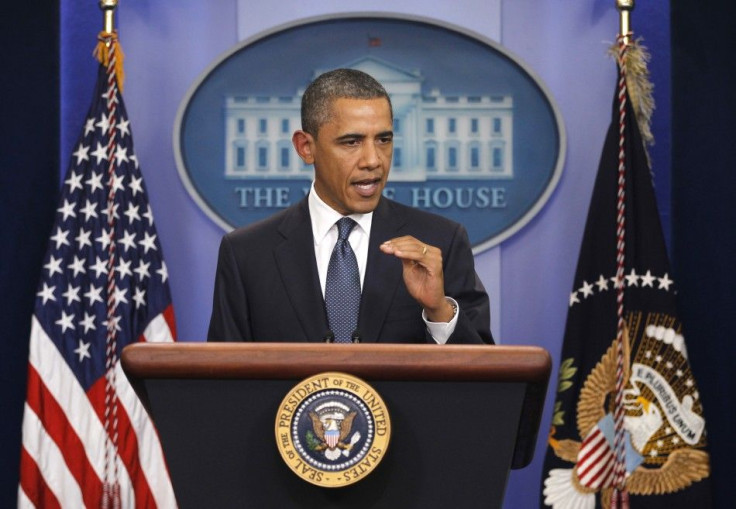Obama, Gibbs: Tea Party Extremism Holding Back Nation, Preventing Progress
ANALYSIS

Robert Gibbs, a former spokesman for President Barack Obama, on Wednesday sought to clarify the role in public policy the Tea Party faction of the Republican Party is playing: counter-productive, to put it diplomatically.
Former White House Press Secretary and current Obama adviser Gibbs said Tuesday that Tea Party-swayed House Republicans want the economy to remain weak, thus improving the chances of a challenger in the 2012 U.S. presidential election.
"At some point you get to ask yourself, 'Are they not dealing with these things because, quite frankly, they just don't want to see this economy get better because they want to see an election that might turn out better for them?'" Gibbs said on NBC's "The Today Show."
President Obama agreed, during a stop in Cannon Falls, Minn. on Monday.
"There is no shortage of ideas to put people to work right now. What is needed is action on the part of Congress, a willingness to put the partisan games aside and say, we're going to do what's right for the country, not what we think is going to score some political points for the next election," Obama said, Fox News reported Tuesday.
The ultra-conservative/libertarian Tea Party has drawn criticism from Democrats, Independents and foreign governments for a rigid ideology, an inability to formulate a public policy plan that would govern all of America -- not just conservatives or upper-income Americans -- and for continually obstructing policies, not because they don't represent good, needed actions for the United States, but because they originated from Obama and/or the Democratic Party.
Taken as the whole, the Tea Party faction's image is one of an extremist, deeply misinformed, isolationist camp that does not offer constructive, productive, enlightened solutions to the nation's problems, and that does not seek a dialogue with the U.S.'s friends in Europe, Asia and other allies around the world.
I Pledge Allegiance, to the Party
At this stage, all 2012 Republican presidential candidates are "pledging allegiance to the flag of the Tea Party," not to the flag of the United States of America.
Other than saying no, saying "hell no," arguing for cutting federal spending, which would lower demand in an already weak economy, and obstructing needed federal actions and decisions, the Tea Party has offered not one substantive policy that address the nation's key problems, the foremost of which is a shortage of 14 million jobs.
Further, the Tea Party, which claims to be pro-business, is actually anti-business.
After the onset of the finanical crisis, had the Tea Party's anti-credit market liquidity actions been implemented in 2008-2011, commercial operations as we know them today probably would not exist. Without the emergency actions by the U.S. Federal Reserve, the European Central Bank, the Bank of England, and the world's other major central banks, the global finance system probably would have collapsed, plunging the global economy into a second Great Depression.
Further, the Tea Party's days may be waning, as Americans appear to be turning against the faction once they learn how intransigent and counter-productive this narrow but vocal political group is. And it's an open question whether Independent voters will give them even 20 percent of their votes in the 2012 election.
© Copyright IBTimes 2025. All rights reserved.





















